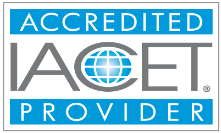This site uses cookies to store information on your computer. Some are essential to make our site work; others help us improve the user experience or allow us to effectively communicate with you. By using the site, you consent to the placement of these cookies. Read our cookie policy to learn more.
While employers do everything possible to maintain a safe workplace, accidents may still occur when hazards are present. Because of this, OSHA Standard 29 CFR 1904 requires that businesses with more than 10 employees and/or in specific industries create and maintain a record of on-the-job illnesses and injuries. Doing so is not only required by law, but also an easy way to identify and eliminate potential risks to employee safety. Designed for supervisors, managers, and other employees tasked with ensuring compliance, the OSHA Recordkeeping and Reporting for All Industries Course covers essential aspects of setting up and maintaining a reporting system in accordance with OSHA Standard 29 CFR 1904.
NOTE: On May 2016, OSHA announced changes to the reporting and recordkeeping standard called the Improve Tracking Final Rule to require certain employers to electronically submit injury and illness data that they are already required to record on their onsite OSHA injury and illness forms. These changes affect establishments with 250 employees or more, or employers with 20-249 employees in certain high-risk industries. These new requirements are effective as of January 1, 2017 for workplaces under Federal OSHA jurisdiction.
The new rules also include Anti-Retaliation protections, which require employers to inform employees of their right to report work-related injuries and illnesses free from retaliation. These provisions became effective on August 10, 2016.
As part of this advanced-level, online training course, participants will learn the requirements governing employer recordkeeping and reporting of workplace injuries, illnesses, and deaths, including:
- All recordkeeping and reporting regulations addressed in Title 29 of the Code of Federal Regulations, Part 1904
- Recent updates to Standard 29 CFR 1904, including the Improve Tracking Final Rule and Anti-Retaliation protections
- Relevant criteria for reportable injuries and illnesses
- Guidelines for completing key forms, including:
- OSHA Form 300, Log of Work-Related Injuries and Illnesses
- OSHA Form 300A, Summary of Work-Related Injuries and Illnesses
- OSHA Form 301, Injury and Illness Incident Report
- Standards for the reporting of fatalities and serious incidents
Upon completion of the course, participants will be prepared to create a compliant reporting system and train employees on how to report workplace injuries and illnesses.
This 1-hour course is appropriate for any employee whose job responsibilities include jobsite safety and OSHA recordkeeping and reporting compliance. These individuals most commonly include:
- Foremen
- Managers
- Supervisors
- Human Resource Representatives
- Any employee who will complete OSHA Forms 300, 300A, and 301
After completing the course, you will be prepared to record workplace injuries, illnesses, and deaths in accordance with OSHA standards to help maintain a safer work environment.
If you have any concerns as to whether this course is appropriate for you or your industry, please browse our full selection of Online Courses and Safety Packs, call 800-971-1080, or Contact Us online.
The OSHA Recordkeeping and Reporting for All Industries Course includes one hour of training and adheres to OSHA Standard 29 CFR 1904. Course participants will receive:
- 1 Continuing Education Units from an accredited IACET provider
- Updated materials that reflect the most current revisions to Standard 29 CFR 1904
- A certificate of completion
To receive a certificate of completion, course participants must pass all in-course drills with a score of 100%. If you are unable to pass a drill, you will be returned to the pre-drill review or the beginning of the current section and given the opportunity to review course materials and try again. Students must also complete the course evaluation form to receive a certificate.
- Very informative
Posted on
0.1
CEUs
CEU Requirements
To receive CEU credit for taking this course, you must:
• Pass the knowledge checkpoints and complete the entire course.
• Complete the course evaluation form at the end of the course.
Upon successful completion, you will receive a certificate showing the CEUs earned.






